Family of Girl with 'Profound Autism' Worried She Wouldn't Get Proper Therapy — Now She's Graduating High School
Sarah Crichigno says that watching daughter Hope walk across the stage brought up "very emotion": "all the tears, just everything. It was amazing"
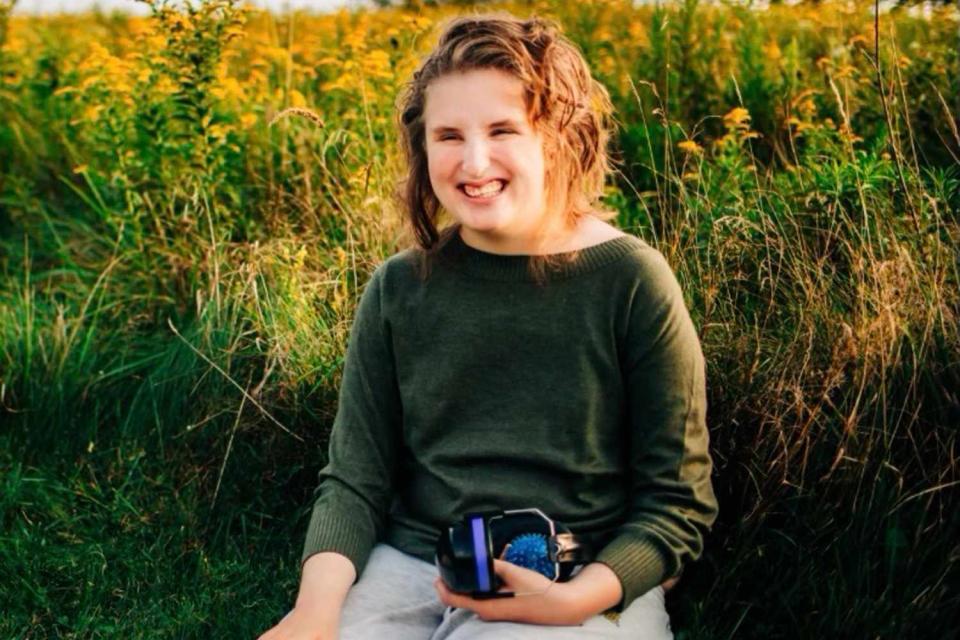
Sarah Crichigno
Hope Crichigno, who graduated from high school in May after receiving years of intense applied behavior analysis (ABA) therapy, which is difficult to come by in her home state of West VirginiaWest Virginia teen Hope Crichigno was diagnosed with "profound autism" as a toddler, referring to a severe version of the disorder
Her family helped her find successful therapy services, which improved her skills and quality of life
By 19, she was ready to graduate from high school in an emotional milestone
Hope Crichigno's family once thought it would be far-fetched to imagine the West Virginia teen graduating from high school given her challenges with severe autism and the lack of therapy services nearby.
Now, the 19-year-old has achieved that goal, which her mother, Sarah Crichigno, says would not have been possible without the people who have stepped up to help her over the years.
“It's just amazing how it worked out,” Sarah tells PEOPLE. “We look back on it from time to time and just have to stop and pause just to reflect on how grateful we are for everything.”
Related: Quintuplets Make History as They Graduate from the Same College: ‘A Gigantic Moment’
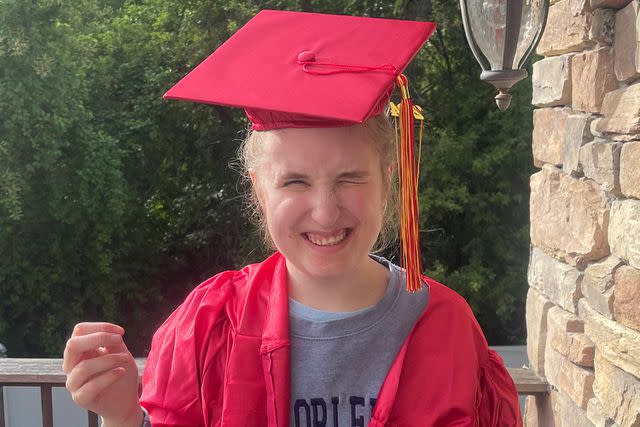
Sarah Crichigno
Hope Crichigno in her cap and gown for graduation in MayHope's mom was 24 weeks pregnant with her when she was born as a “micro preemie” — and Hope spent the first six months of her life in the neonatal intensive care unit.
“We weren't sure if she would even live,” Sarah says, noting that Hope “was very touch-and-go many, many times.”
Never miss a story — sign up for PEOPLE's free daily newsletter to stay up-to-date on the best of what PEOPLE has to offer, from celebrity news to compelling human interest stories.
During Hope’s time in the hospital, doctors told her parents that she would likely have a severe health condition of some sort. By the time she was a toddler, Hope was diagnosed with autism.
“Even though we'd been warned, I felt a little disbelief," Sarah recalls.
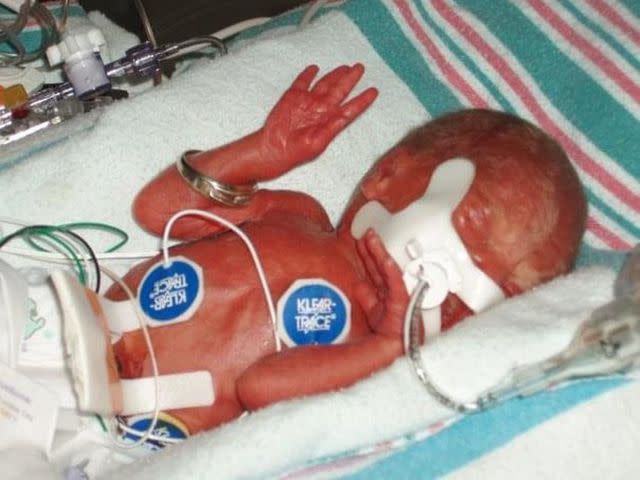
Sarah Crichigno
Hope Crichigno as a baby in the neonatal intensive care unitHope was 3 years old when she was diagnosed with "profound autism," a term used to refer to an extreme version of the disorder. Doctors recommended she undergo seven to eight hours of intensive therapy each day, “and that's just a daunting task,” her mom says.
Hope’s parents were connected with Dr. Susannah Poe, who runs the WVU Medicine Children's Hospital's Neurodevelopmental Center. They met when Hope was attending a NICU follow-up appointment before receiving her autism diagnosis.
Related: Mother and Son Graduate College Together After Competing for Higher GPAs: 'Now I Owe Him $500!'
Luckily for the Crichignos, Poe had just opened the clinic — previously known as the Intensive Autism Service Delivery Clinic — shortly before learning Hope was in need of specialized services.
At the time, Poe says, it was a very small operation with no funding.
After learning there was a spot open for Hope, the Crichigno family moved to Morgantown to be closer to the clinic. They were thrilled to have found the kind of care their daughter needed, they say now.
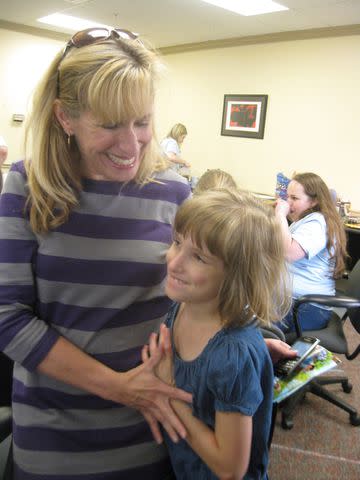
Sarah Crichigno
Sarah Crichigno, left, and a young Hope Crichigno, rightHope was nonverbal, lacking specific social skills and not eating on her own when she first reached the clinic at age 5, Poe tells PEOPLE.
But through applied behavior analysis (ABA) therapy, she learned several key life skills — such as eating on her own, using the restroom on her own, washing her hands, following commands and saying certain phrases — as well as the skills she would need to attend school.
“Part of our joy in working with Hopey was watching her grow as she gained these skills,” Poe says, using a favorite nickname for the teen.
Related: Commencement Speaker Brings Duffel Bags of Cash and Gives Graduates $1,000 Each — with a Catch!
Hope learned a lot through imitation and the reinforcement of good behaviors and habits with items that “fascinated” her, like rubber ducks, bubbles, a disco light and more, according to her mom.
At 8 years old, she began attending school part time. She had to adapt to a brand new environment, one that was much different than the clinic she was used to, with lots of new stimuli.
“But she did it. She did great,” Sarah says, adding that Hope “had the most wonderful elementary school teacher we could ever have asked for who just loved her.”
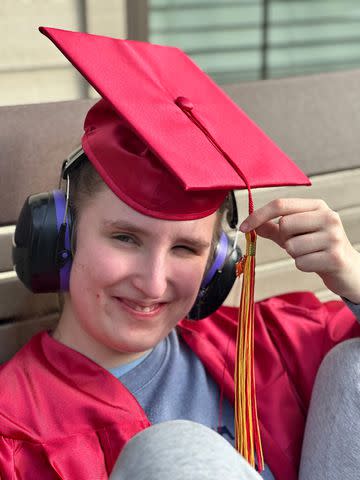
Sarah Crichigno
Hope Crichigno, 19, wearing her cap and gown for graduationWhile at school, Hope learned about science, English and math like other students, though her studies “were all tailored to her special needs.” By 19, she was ready to graduate from University High School in Morgantown.
Hope spent a week practicing for the special day, which brought her mom to tears. “She walked across the stage, they announced her name, and it was like we just exploded,” Sarah says. “Every emotion — all the tears, just everything. It was amazing.”
The teen is “still learning and growing” every day, Sarah says. Hope has remained connected with both Dr. Poe and Haley Johnson, a former graduate student whom she connected with at the clinic.
Related: 11 Sets of Twins to Graduate from Same Pennsylvania High School Together
Johnson, a board-certified behavior analyst, tells PEOPLE that she, too, enjoyed watching Hope’s growth over the next years and is proud to have helped her accomplish her goals, including sweet childhood experiences like sleepovers.
“Watching her take those small foundational skills and build on those skills over the last almost 10 years has been something that's so special to me,” she says.
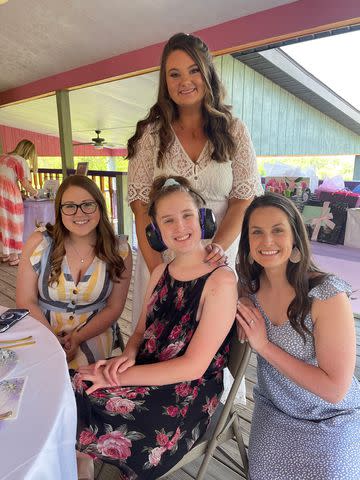
Sarah Crichigno
Hope Crichigno (center) at Haley Johnson's bridal shower in 2021Both Hope and Johnson have celebrated each other’s major milestones together: Not only did Johnson attend Hope’s graduation, Hope was recently at Johnson’s wedding.
“She just holds such a special part in my life,” Johnson tells PEOPLE.
Clinics that offer ABA therapy are difficult to come by in West Virginia. According to Johnson, 41 out of 50 counties in the state do not have access to such services in a clinic setting.
Broadly speaking, ABA therapy uses encouragement and reinforcement methods to help patients focus more on positive behaviors and less on negative ones. Though the practice and certain techniques has been debated and stirred controversy, it is described as evidence-based by health care experts.
Related: High School Student with Disability Felt 'Robbed' After Having to Sit in Audience for Graduation
When done “correctly and ethically,” ABA therapy can have “a wonderful outcome for many, many people,” Poe says.
Meanwhile, Sarah hopes her daughter’s story will lead to more programming and support for individuals with autism of all ages, but especially adults and those most in need.
“We have a whole generation that's aging up of people with profound autism,” she explains. “And there need to be more facilities in the country to care for them and provide for them, because [Hope] needs a meaningful life too.”
For more People news, make sure to sign up for our newsletter!
Read the original article on People.


